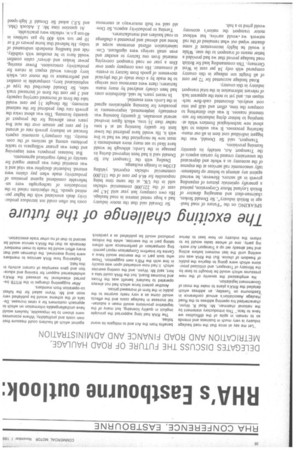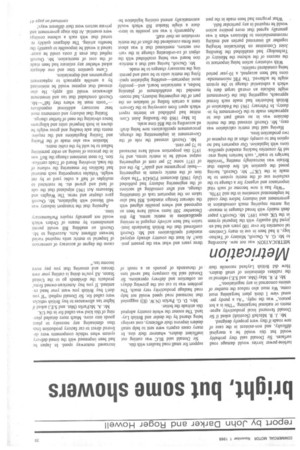RHA's Eastbourne outlook: bright, but some showers
Page 40

Page 41

If you've noticed an error in this article please click here to report it so we can fix it.
DELEGATES DISCUSS THE FUTURE OF ROAD HAULAGE, METRICATION AND ROAD FINANCE AND ADMINISTRATION
"Let me say at once that the road haulage industry is very much in business and intends so to remain in spite of the difficulties we have to face.This introductory statement by the national chairman, Mr. Noel R. Wynn, characterized his opening address to the Road ,Haulage Association's annual conference in Eastbourne on Tuesday, an address which detailed the RHA's plans to make the most of Government legislation.
He emphasized the severity of the new pressures which would be brought to bear by the Ministry of Transport, and criticized provisions which were going to deprive the public of freedom of choice. But the RHA was not waiting until the last moment before acting and had already set up a Transport Act working party, one of whose tasks would be to inform the industry on how best to derive benefits from the Act and to mitigate its worst follies.
The RHA had long supported the principle implicit in quality licensing, but many of the legislative provisions would mean a substantial increase in haulage costs and the effects would come as a very nasty surprise to the public in the form of increased prices.
Another potent force which had not always operated to hauliers' benefit was the Prices and Incomes Board, but the RHA could take a hint, said Mr. Wynn, and the costing exercise which it had now embarked upon was exactly in line with the PIB's own suggestion. Those who took part in the exercise would have a Centre for Interfirm Comparison report permitting comparison of performance with others taking part in the exercise, while the indices produced would be published as a yardstick against which all hauliers could measure their own costs and profitability. Where economies were shown to be impossible, hauliers would have unchallengeable information on which to approach customers for a rates increase. Details of the scheme would be published very soon and Mr. Wynn asked for the fullest co-operation from members.
After suggesting changes in the RTITB (reported elsewhere) he stressed the RHA's wholehearted support for training and education and gave examples of current activity in this field.
Explaining how RHA services to members were being examined, the chairman said that every effort would be made to meet members' demands so that the RHA's service would be second to that of no other trade association.




































































































